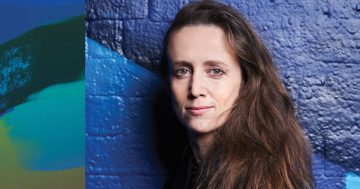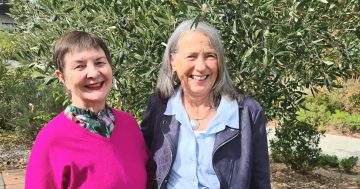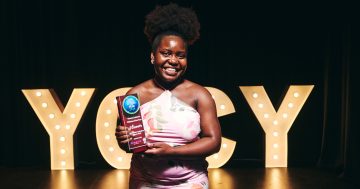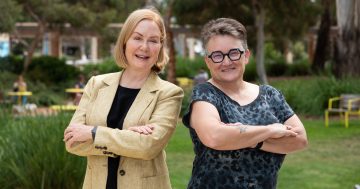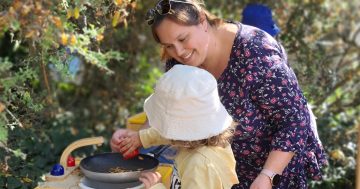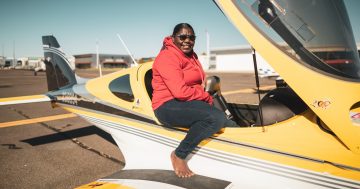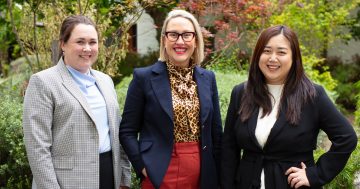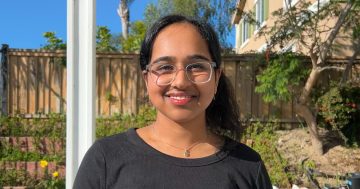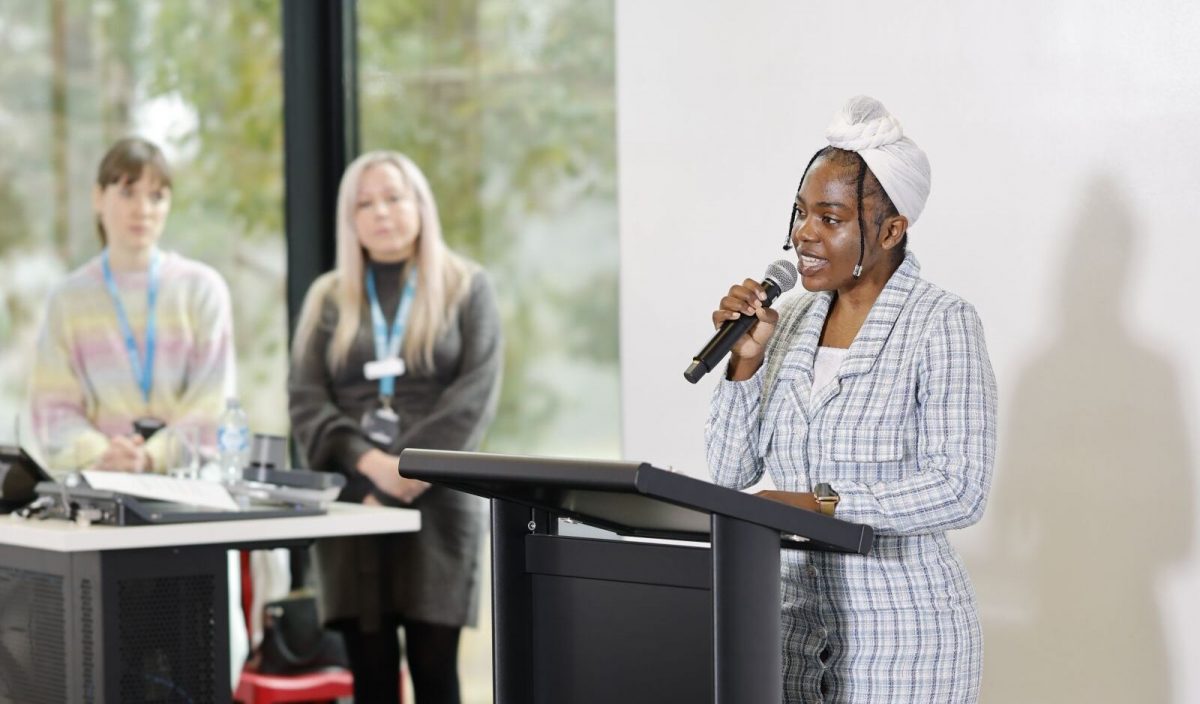
Atosha Birongo is now in her final year of a Politics and International Relations degree at the University of Canberra. Photo: David Beach Photography.
Atosha Birongo was born a long way from the wide roads and roundabouts of the bush capital.
Her mother gave birth to the now final year University of Canberra student at home, alone in the Democratic Republic of Congo as a civil war ripped the country apart.
Nine years later, the family was forced to make the first of many difficult decisions after the war kicked off again.
Atosha and her younger brother crossed the border into Kenya with their mother. But the rest of the family unit – her father and six other siblings – was splintered.
After later reuniting with her father and one brother, all five of them spent years living in a one-bedroom apartment.
It would be almost a decade before the entire family could reconnect.
Now aged in her 20s, Atosha still remembers what it felt like to live in insecurity and fear.
She would often go to the markets to clean shops to get money to help the family get by as neither of her parents had work.
But during that time of upheaval, Atosha’s mum instilled in her the importance of education and she worked hard at school, even receiving a scholarship in high school.
Six years and three months later, Atosha, her younger brother and her parents received the news they had been waiting for.
They were awarded Humanitarian Visas and were to be resettled in Albury-Wodonga.
In 2017, when Atosha was told she was moving to Australia, she “wasn’t even excited”.
Instead, the fear of the unknown took over.
“But that changed when we landed at Sydney Airport. Everyone was very welcoming and I thought to myself, this could be a place for me,” she said.
While Atosha did experience “some prejudice” at high school in the NSW border town, she also found this faded as she became more confident.
“At first, I wasn’t able to be vocal about what I had seen and experienced, but my involvements with school and the community helped me be bold,” she explained.
This passion for leadership and sharing her story led to Atosha being appointed as one of only eight UNICEF Australia Youth Ambassadors in 2018.
As is the experience for many migrant families, Atosha – who learned English more quickly than her Swahili and French-speaking parents – ended up acting as an interpreter for them.
“It was difficult for my mum in particular to settle because she has 12 children, but only two of them were with her,” she explained.
“But as time went on, my dad found worked as a tailor, which meant he could continue sharing that aspect of our culture and my mum started volunteering at a local food bank which helped her connect with the community.”
In 2018, the family began to work with the Red Cross to see if they could track down the missing members of their family.
Thankfully, they tracked down all of Atosha’s siblings. All were alive and living in Kenya, and one of Atosha’s sisters has even recently come to live with her parents in Albury-Wodonga.
That’s helped her mum immensely, Atosha noted.
“It’s just incredible how far we have all come since we arrived in Australia.”
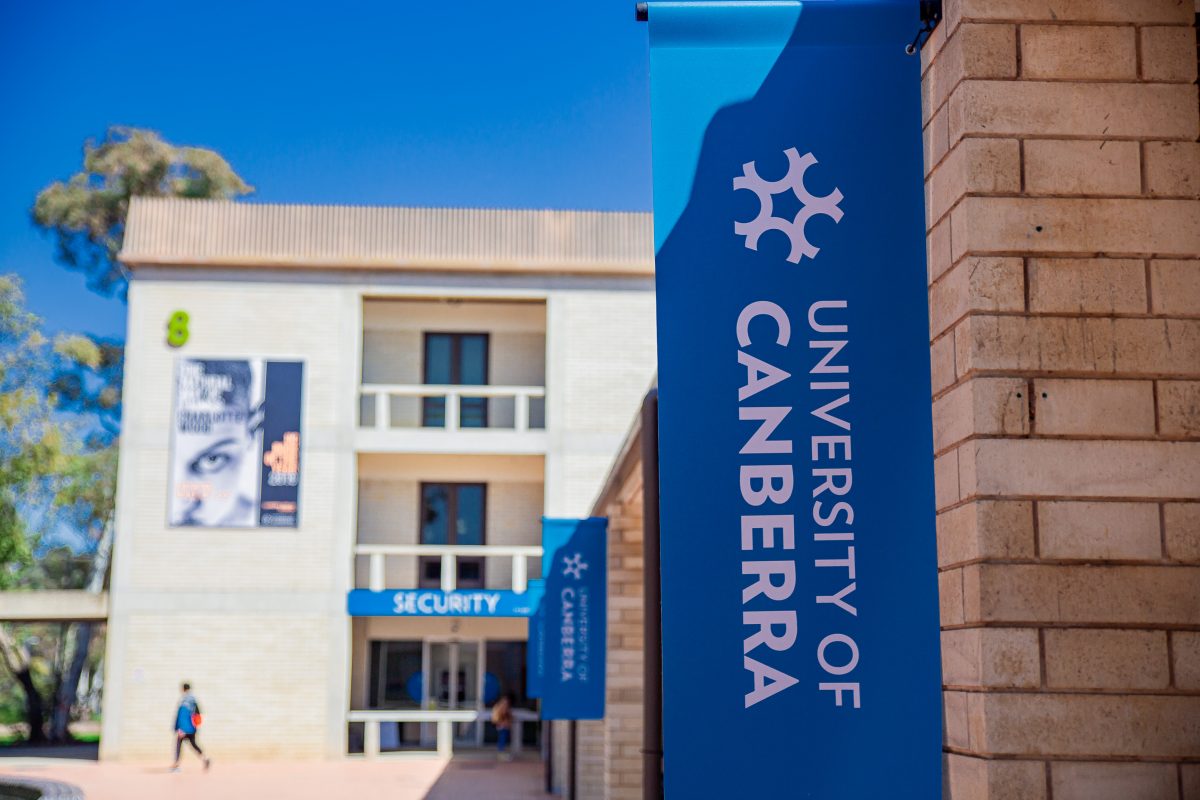
Atosha remembers the day she got an email telling her s he had received an “unconditional offer” to study at the University of Canberra. Photo: File.
Atosha also made another big move all by herself after finishing school – to Canberra for university.
“I was nervous at first, but it’s been so rewarding,” she said.
She is now in her final year of an International Relations and Politics degree and works as a research intern at the Centre for Deliberative Democracy and Global Governance.
Atosh clearly remembers the day she got the offer to study at UC.
“I got an email one afternoon which said I had an ‘unconditional offer’ and I didn’t understand what that meant,” she said.
“So I went to talk to one of the librarians about it, and when she explained it, I just couldn’t believe I would have the chance to go to university.”
Atosha knows how lucky she is given many girls and women in Africa don’t get the opportunity to pursue higher education.
Now, her dream job is to work for the Department of Foreign Affairs, focusing on foreign aid and Australia’s relationships with developing countries.
A kind of full circle in a way.
And this Refugee Week, Atosha’s message for politicians and policymakers is simple: “we want to make this place our home and we have so much willingness to learn and share – and that should be celebrated.”
For more details about Refugee Week events, visit Refugee Week.











